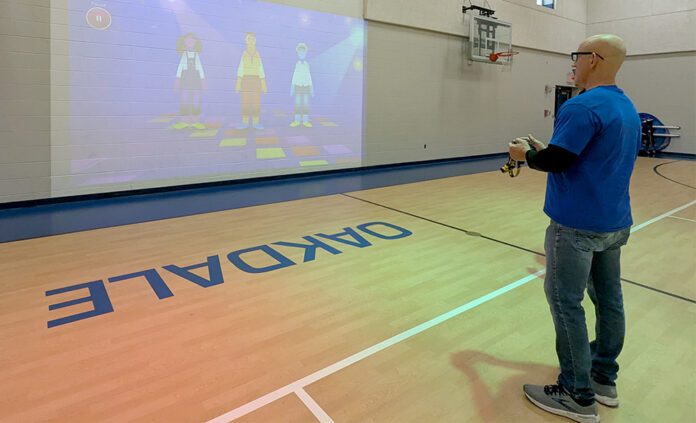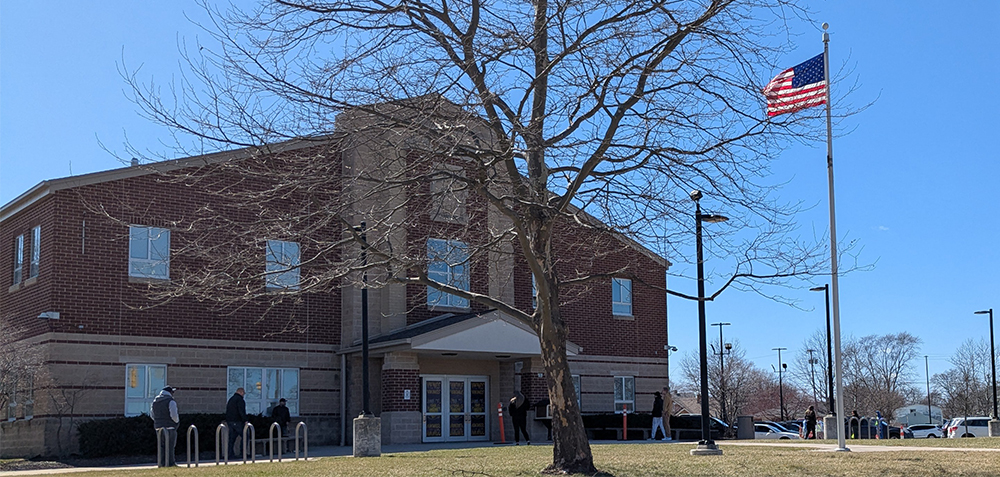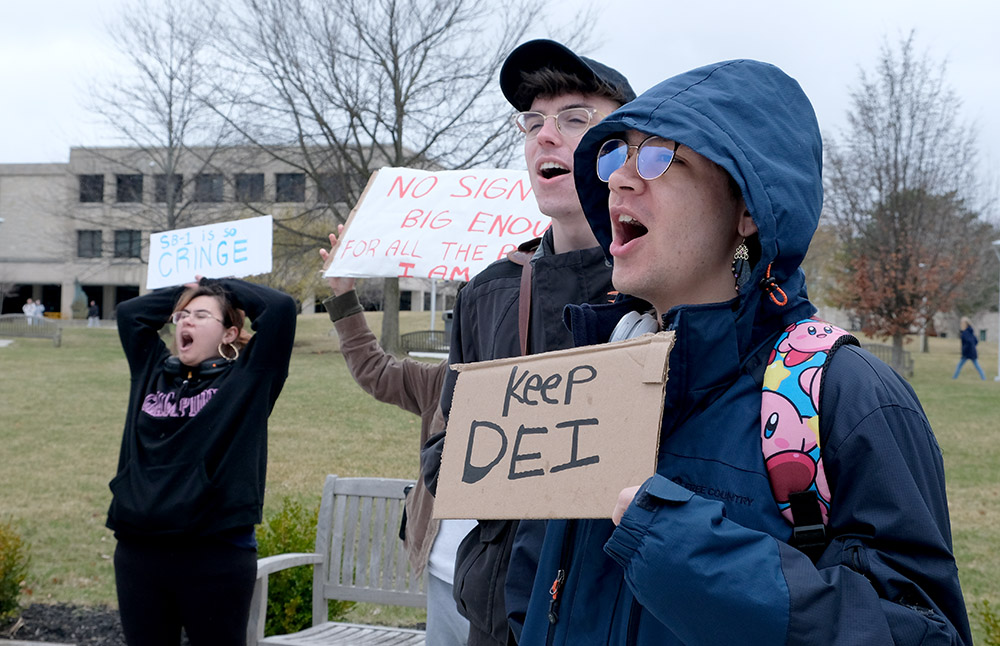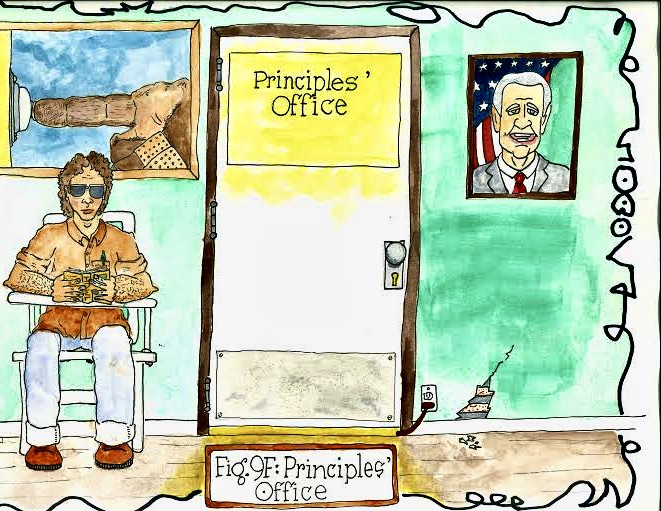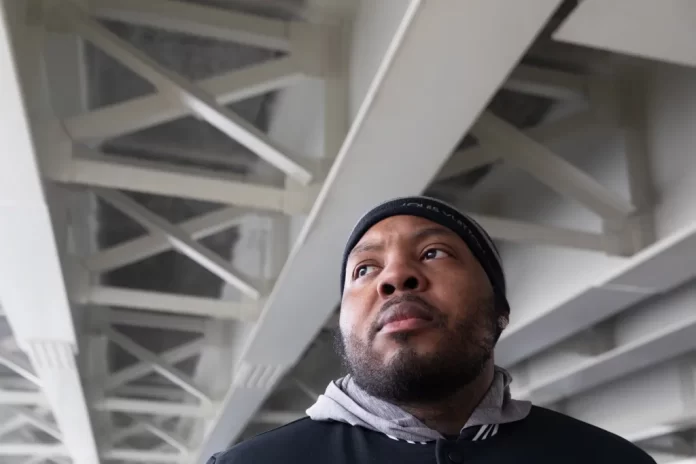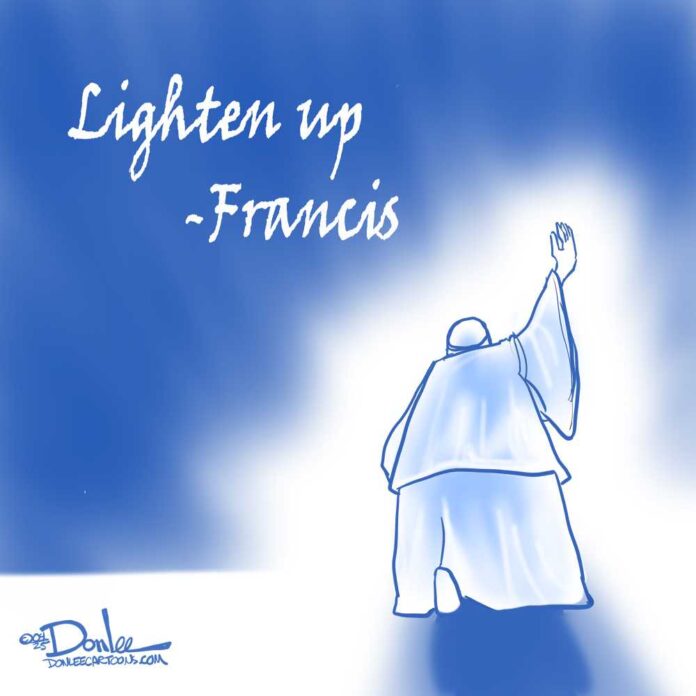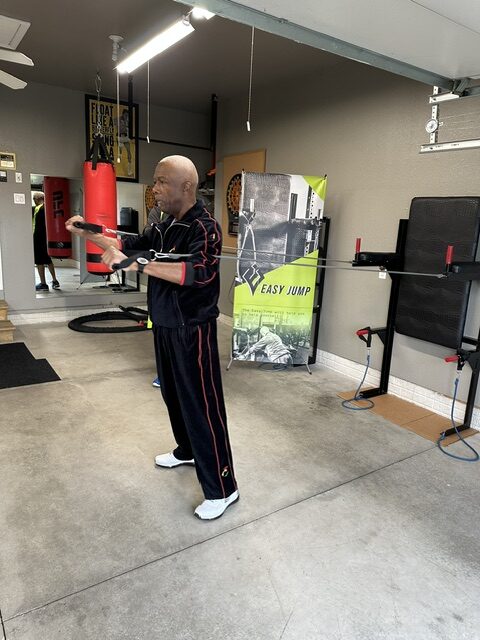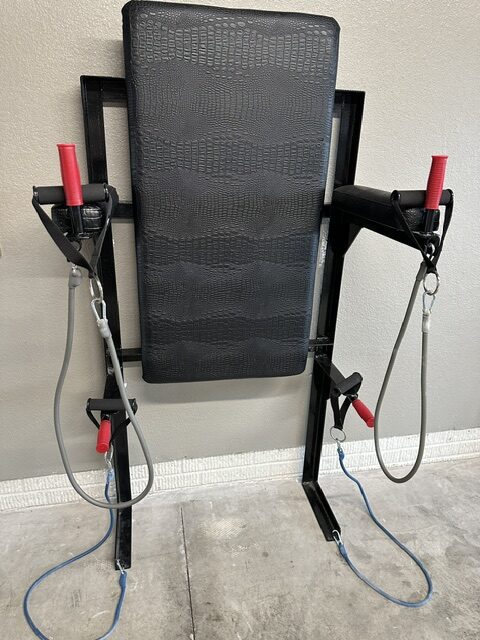(Happenings are compiled from press releases and placed in order of occurring dates)
NEWS SHORTS BRIEFS ARE UPDATED DAILY
HAPPENINGS
Toledo Streets Newspaper FRIENDraiser
Toledo Streets Newspaper is hosting their second annual Toledo Streets Newspaper Day with a Vendor Appreciation and Celebrity Sell event. Celebrate the entrepreneurial success of Toledo Streets Newspaper Vendors and watch Toledo celebrities – CatTrick, Kevin Mullan, Matt Killam, Robert Chromik, Mayor Wade – become TSN Vendors to raise awareness for the paper’s mission.
Thursday, May 1
> Noon at Toledo Streets Newspaper, 316 Adams St., Toledo.
Toledo Museum of Art exhibitions
- These exhibitions are now open:
- Chris “Chilly” Rodriguez: The Journey So Far on view until July 6 in the Green Building,
- Rachel Ruysch: Nature into Art on view until July 27 in the Green Building.
- These exhibitions are closing Sunday, April 29:
- Expanding Horizons: The Evolving Character of a Nation on view in the Green Building.
- In a New Light: Impressionism and Post-Impressionism on view in the Glass Pavilion.
Styled Hair Co. celebrates grand opening in Toledo
TOLEDO – Styled Hair Co. is thrilled to announce its grand opening celebration with a ribbon cutting ceremony on May 2 at Styled Hair Co.’s new salon space in Toledo. The event is to the public.
The evening will be a lively celebration of beauty, style and community. Guests will enjoy complimentary beverages and have the chance to shop and connect with a curated lineup of local vendors, including:
● Dollop Shop – serving delicious treats
● Money Trees Plant Shop – greenery
and plant decor
● Seven Sparks Co. – permanent jewelry
services
● Stumbled Upon Vintage – handpicked
thrifted fashion
● Buff City Soaps – locally handcrafted
soaps and bath items
● House of Dow – thrifted vintage
accessories and apparel
At the heart of Styled Hair Co. is founder and stylist Tiana Dorcely, whose vision, passion and commitment to elevating natural beauty have brought this dream to life. With years of experience and a loyal client base, Tiana has created a welcoming space where clients feel both seen and styled. Styled Hair Co. reflects her dedication to inclusive beauty, modern technique, and elevated self-care.
Friday, May 2 from 5 p.m. to 8 p.m. at 1801 N. McCord Rd. in Toledo.
Spring Plant Exchanges offers plant swap, supplies
Toledo Plant Exchange – May 3
Lucas County Fairgrounds, 1406 Key St., Maumee (Main Entrance, Arts & Crafts Building). Donations begin at 8:30 a.m., followed by the exchange from 10 to 11:30 a.m. Each attendee gets five free plants, with more for those who contribute plants. Visit informational booths and connect with fellow gardeners. Info: 419-578-6783 or the Toledo Plant Exchange Facebook page.
Rachel Ruysch: Nature into Art comes to TMA
TOLEDO – Rachel Ruysch: Nature into Art, the first major exhibition of Ruysch’s art, will be on view beginning in April. Featuring over 100 works—including paintings, botanical books and drawings, and plant and animal specimens, the exhibition explores Ruysch’s extraordinary career and the intersection of art, science, and natural history.
The visitor’s experience with the exhibition is enhanced with interactive and educational elements including an audio guide, an audio description tour, a digital species map, tactile and scent features, a printed exhibition guide, and a fully illustrated catalogue available for purchase.
Highlights of the exhibition include:
- Several important Ruysch paintings from major international collections that have rarely or never been on public view.
- A reunion of Flower Still Life (c.1716–1720), TMA’s Ruysch masterpiece, and its long-separated pendant, Still Life with Fruit, Bird’s Nest and Insects (1716), from Dudmaston Hall in England.
- Three portraits of Ruysch, including a family portrait with her husband and youngest son and a recently discovered portrait of the artist in her studio.
- Works by Ruysch’s sister Anna, also a talented flower painter who experienced a far shorter career than Ruysch. (04/09)
April 12-July 27 in the Levis Gallery in the Edward B Green Beaux-Arts Building on the campus of TMA. Tickets to the exhibition are $10 per visitor and free for TMA members. General admission to the museum and parking are free to all visitors.
Maumee Valley’s Afro-Am Club presents Annual Afro-Am Dinner
TOLEDO – Maumee Valley Country Day School’s Afro-Am Club announced the return of its annual event, the Afro-Am Dinner. This celebration delivers an evening of cultural enrichment and community engagement.
Aligned with the spirit of Black History Month, the Afro-Am Dinner serves as a platform to honor and celebrate the rich heritage and contributions of the African American community. This year, the event’s theme mirrors that of the national theme: “African Americans and Labor.” The 2025 theme highlights the transformative impact of Black workers—free and unfree, skilled and unskilled—on U.S. history, culture, and social progress.
The Afro-Am Dinner is open to the public.
Thursday, May 1, from 6:30-8:30 p.m. in the school’s Dining Hall.
Tickets are $10 per person and all proceeds benefit the Afro-Am Club. Additional donations will be accepted at the door. Register HERE or visit the website for more details.
Glass City Record Show returns to Stranahan Theater
TOLEDO – The Glass City Record Show, a long-standing Toledo tradition, returns to its new home with its second event of the 2025 season. While the snow-plagued Feb. 16 debut at The Stranahan Theater and Great Hall saw 450 people brave the weather, Jeremy D. Bonfiglio, who owns and operates the Glass City Record Show, is hoping those who stayed away for the season opener will come out for the spring event.
“We had a great, enthusiastic, and brave crowd come out in February, but the snow and ice kept some folks away,” Bonfiglio said. “Despite the weather, people gushed over the new location, the added space, and our vendors, who continue to bring great records, tapes, CDs, and more to the show. Now that the weather is less threatening, we hope those who missed our debut at The Stranahan will come out and see it for themselves.”
After several decades at the Knights of Columbus Hall on Secor Rd., the popular music event moved in 2025 following the sale of the event space last year.
“The Knights of Columbus served as our home for many years, and we are grateful for everything, but I don’t think it’s a secret that we had outgrown the space. The sale helped push us to look ahead at other possibilities,” Bonfiglio said. “We are ecstatic about the new location. The Stranahan Theater and Great Hall is a name that people know and trust for hosting spectacular events. It is a beautiful venue that allows us to expand this year and gives us room to grow in the future.”
The Glass City Record Show, now in its 45th year and second under Bonfiglio’s direction, draws music enthusiasts of all ages, whether they are getting into vinyl for the first time or have been collecting for decades.
On Sunday, 40 vendors from five states will occupy 75 tables, selling various music items, including pre-loved LPs, new vinyl releases, 45s, CDs, cassettes, posters, record supplies, vintage stereo equipment, and more.
New this year is a concession window where customers can purchase snacks, soda, hot dogs, pizza, and alcohol, and a landing area where customers can take a break from shopping to eat, share their purchases with friends and take in the show.
“It’s all about creating an event for people who are just as crazy about music as we are,” Bonfiglio said. “Whether this is your first show, or you have been attending since 1980, we want you to share this experience of sifting through bins, discovering new artists, and swapping music stories.”
Key Highlights:
• All music genres are represented, with a strong emphasis on classic rock, modern pop, ’80s, hard rock and metal, punk, jazz, blues, R&B, country and more.
• Door prize drawings will be held at 11 a.m. and 1 p.m. for the chance to win $25 shopping certificates and record products from BCW Supplies, the event’s sponsor, based in Middletown, Indiana.
• BCW is giving away tote bags to the first 75 customers at the door.
• Glass City Record Show tote bags also will be for sale at the door for $10.
• Attendees are encouraged to bring cash, the preferred form of payment for all vendors. Select dealers may accept credit and debit cards, PayPal, Zelle, and Venmo. There is no ATM on site.
• The Stranahan, however, is a cashless venue, so cards or tap-to-pay must be used at the concession window.
• Mark your calendars: Future Glass City Record Shows are scheduled for Aug. 10 and Nov. 9, 2025.
For more information, visit glasscityrecordshow.com or follow us on Facebook at facebook.com/GlassCityRecordShow.
Sunday, May 4. General admission begins at 10 a.m. and costs $2. Stranahan Theater, 4645 Heatherdowns Blvd., Toledo.
Toledo Opera to Hold Children’s Chorus Auditions for Carmen
TOLEDO – Toledo Opera is seeking boys and girls ages 9-14 with unchanged voices to sing in the children’s chorus of Carmen (August – October 2024 commitment).
Bizet’s sizzling epic of dark passion, Carmen, tells the story of a fierce woman who lives life on her own terms – and the men who can’t let her go. Don José, a soldier drawn into her orbit, abandons everything for Carmen’s love, only to find himself consumed by jealousy when her attentions shift to the dashing bullfighter, Escamillo.
With its twisting tale of romance, deceit, and disaster set to magnetic melodies, Bizet’s masterpiece, Carmen, has become one of the world’s most celebrated operas. Featuring some of the most popular music to ever grace the opera stage, Carmen brings every aspect of Bizet’s thrilling tale to life, from its tantalizing beginning to its devastating climax. Under the baton of Adam Turner (Toledo Opera’s Il Trovatore and Roméo & Juliet), Toledo Opera’s vibrant original production is not to be missed.
Rehearsals will take place on Sundays from 4 p.m. to 4:45 p.m. at the Toledo Opera Offices. To schedule an audition, please email James Norman at jnorman@toledopera.org.
Auditions: Saturday, May 17 from 10 a.m., and on Sunday, May 18 from 3 p.m. until 6 p.m.
> Auditions will be held at Toledo Opera Offices, 425 Jefferson Ave., Suite 601.
Water Safety in Toledo – Free Family Event
The Josh Project has partnered with SafeSplash SwimLabs (Holland & Perrysburg) to host a Water Safety Day.
This free, family-focused event is designed to educate families on drowning prevention and safe practices around water—just in time for summer. The day will feature:
- Live CPR demonstrations by Camisha Mincey of A Wyse Choice Homecare
- Safety tips from organizations like Toledo Fire and Rescue, Safe Kids Greater Toledo, the Coast Guard Auxiliary and more
- Interactive activities, giveaways, and educational resources for all ages
The Josh Project has been a vital part of the Toledo community for years, offering affordable swim lessons to reduce drowning rates, particularly in underrepresented communities.
Saturday, May 10 from 11 to 3 p.m. at St. Francis de Sales School (2323 W. Bancroft St., Toledo).
Miller Ferries honor American veterans on Memorial Day weekend
Put-in-Bay – Miller Ferries will offer active U.S. military personnel and American veterans free passenger fare in honor of Memorial Day. Military personnel and veterans are asked to please present military identification at the Miller Ferry ticket booths in order to receive a free round trip passenger ticket to Put-in-Bay or Middle Bass Island.
On May 26, the National Park Service’s Perry’s Victory and International Peace Memorial on Put-in-Bay will have a Memorial Day Ceremony. It will pay tribute to everyone who has defended the United States of America – from the Revolutionary War to the Afghanistan War.
Saturday, May 24 through Monday, May 26.
> For ferry schedules, visit MillerFerry.com.


